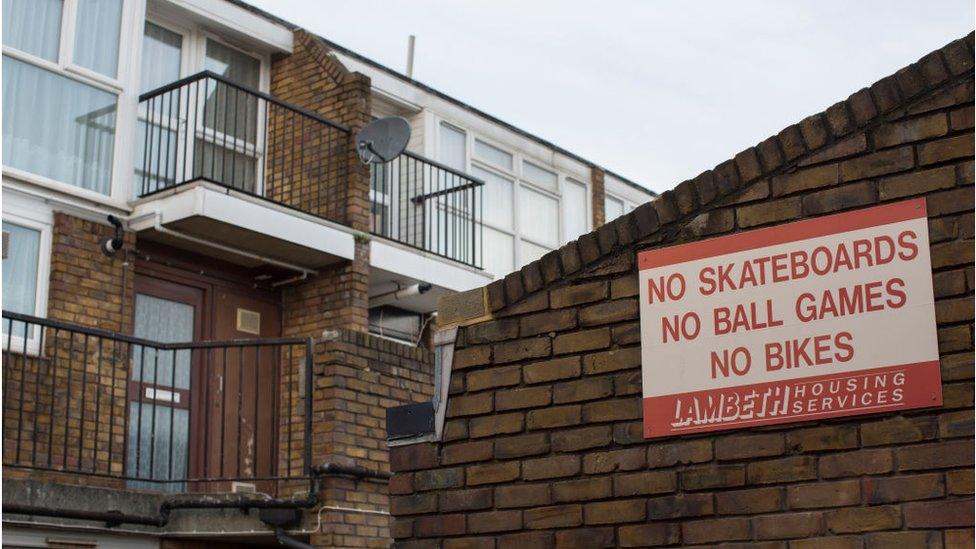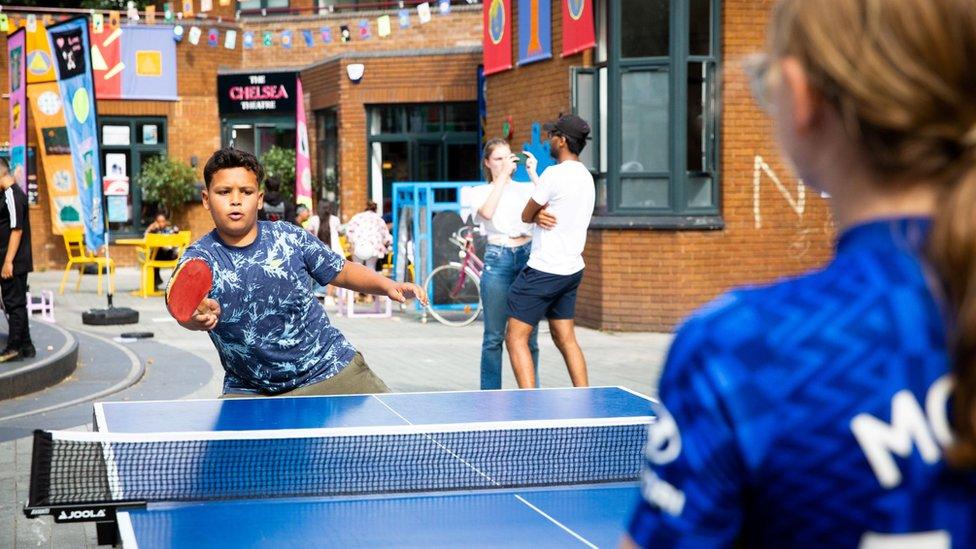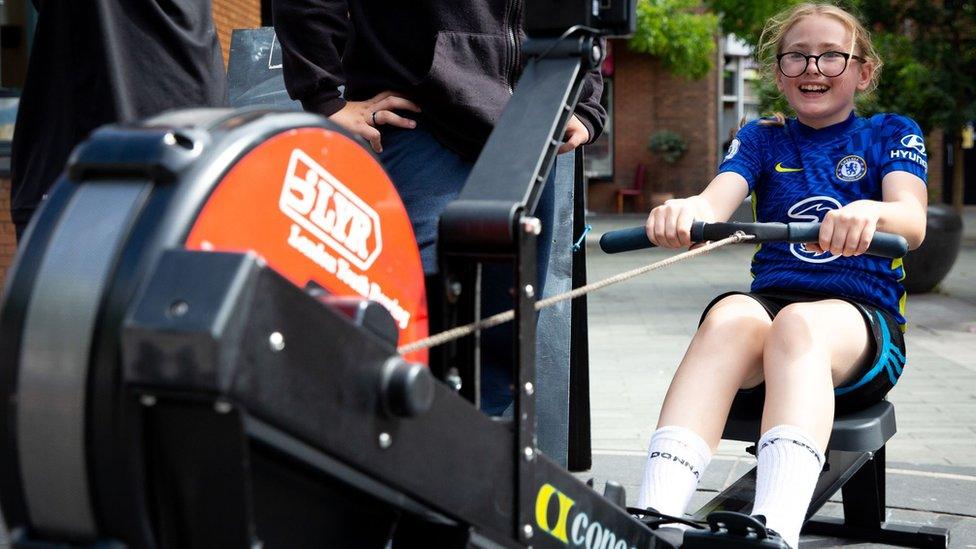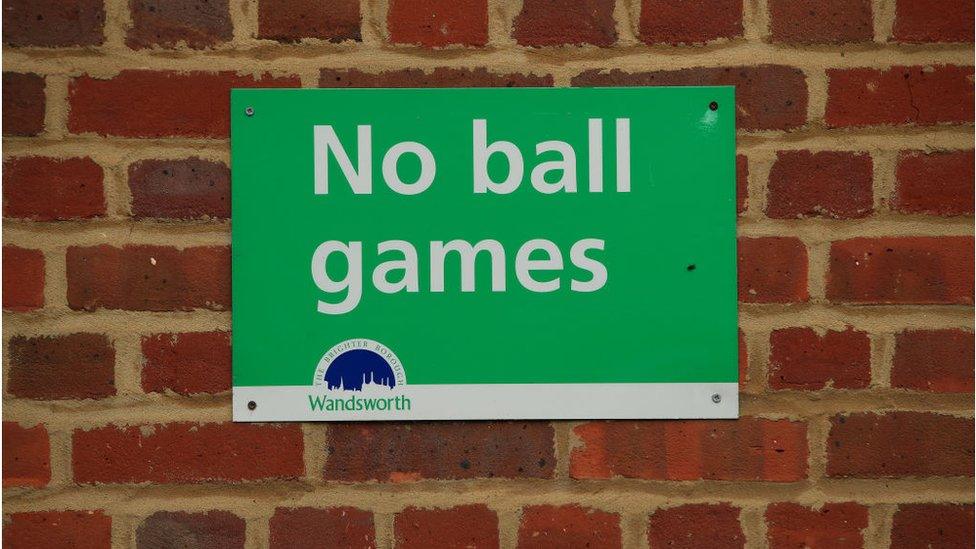London charity wants 'No Ball Games' signs removed
- Published
- comments

Sport London wants more spaces to be available for young people to be physically active
A charity has called for "No Ball Games" signs to be taken down to encourage children to be more active.
London Sport has released research indicating half of the five to 16 age group in the capital - 620,000 children - are not exercising enough.
The study also revealed so-called "activity gaps" between sexes, income groups and ethnicities.
The charity wants all London mayoral candidates to commit to improving activity levels.
"These include promoting walking and wheeling to school, protecting swimming pools and other sports facilities, and removing 'No Ball Game' signs to create more spaces for children to be active," London Sport said in a statement.

London Sport said the figures are "a real cause for concern"

Activity gaps
Girls in London are nearly 10% less active than boys (42% vs 50%)
Children from lower-income families are more than 10% less active compared with those from higher income families (42% vs 53%)
Black and Asian children are more than 10% less active than White children (39% black and 39% Asian vs 51% white British and 57% for white other)
Source: Sport England Active Lives report


Girls are typically less active than boys, statistics indicate
Sport England's Active Lives report, external shows suggests hundreds of thousands of children of school age are not achieving the recommend 60 minutes of daily exercise, as set out by the government's chief medical officer.
Emily Robinson from London Sport, said: "These figures are a real cause for concern and demonstrate how critical it is that we end the child inactivity crisis.
"This is not just about giving children an outlet to play and have fun, this is about avoiding future health issues, improving children's mental health, and even helping them perform better academically.
"We know the potential that sport and physical activity can have on our city, so it's vital that we stop treating it as a luxury and instead focus on using it as a tool to improve health outcomes, reduce the burden on the NHS, and ultimately save lives."

Research suggests different boroughs have widely different levels of physical activity
According to the Trust for London, which funds projects to make the city fairer, more than a quarter of children in Year 6 in London were considered obese (26%) - higher than the national average (23%).
London was ranked 32 out of 45 regions in England for children's activity levels, according to the Active Lives report.
London Sport said it wants to support communities in areas with the greatest levels of inactivity and inequality, such as Tower Hamlets, where it is trialling free dance sessions for teenage girls.
The initiative aims to use non-traditional spaces like car parks and vacant shopping units to provide women and girls with a safe environment to play sport and take part in other activities.

Listen to the best of BBC Radio London on Sounds and follow BBC London on Facebook, external, X, external and Instagram, external. Send your story ideas to hello.bbclondon@bbc.co.uk
Related topics
- Published1 October 2023

- Published12 February 2020

- Published16 March 2015

- Published6 December 2010